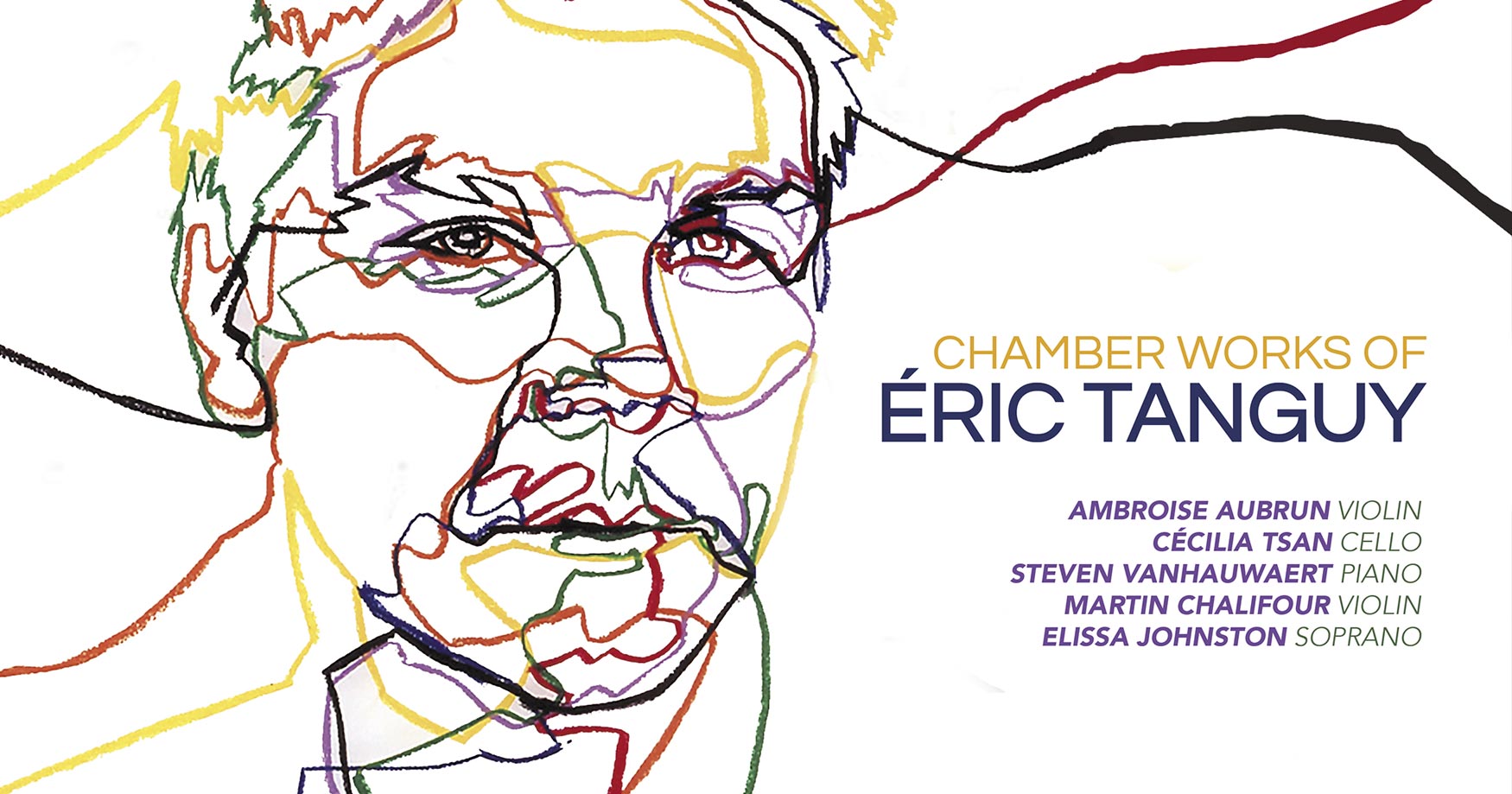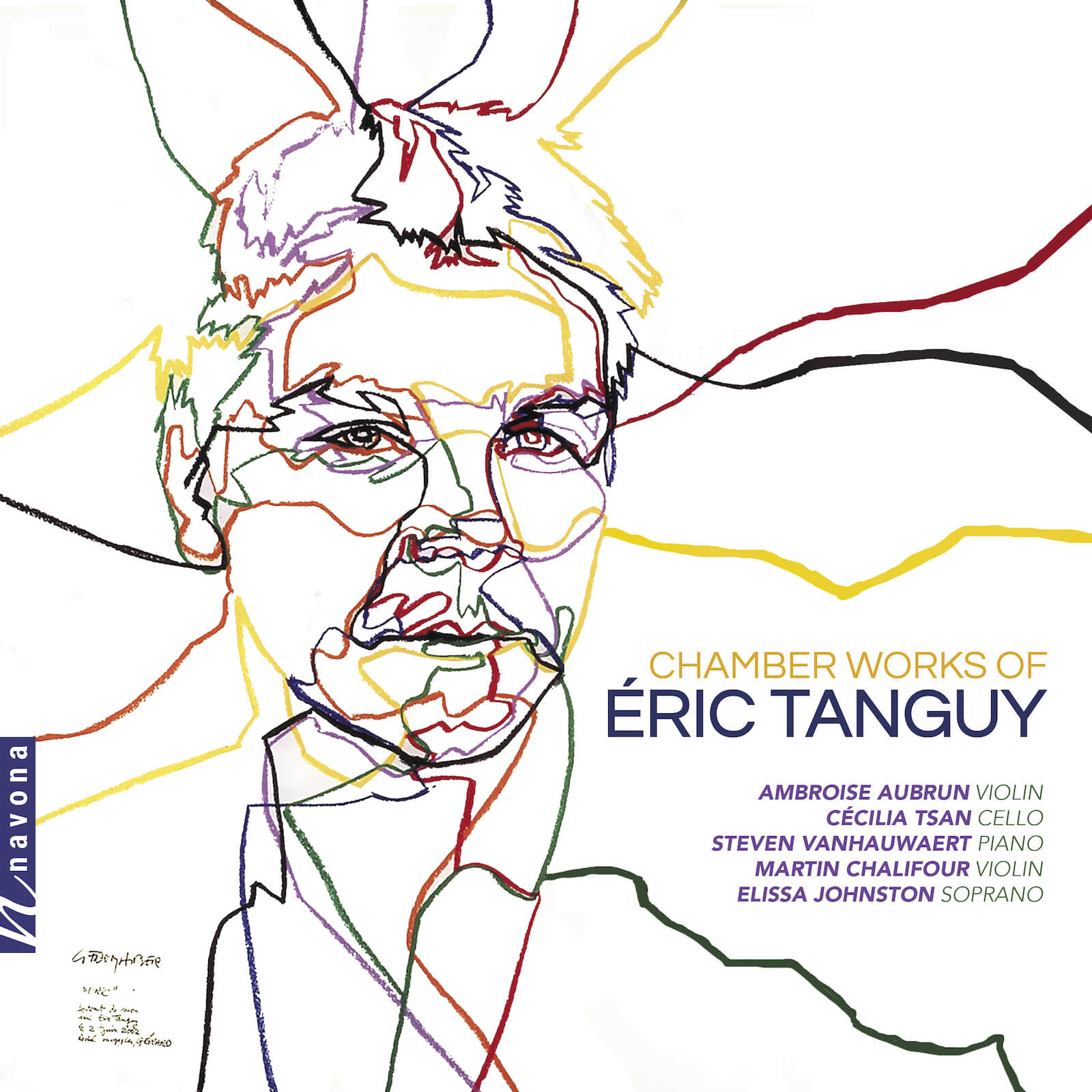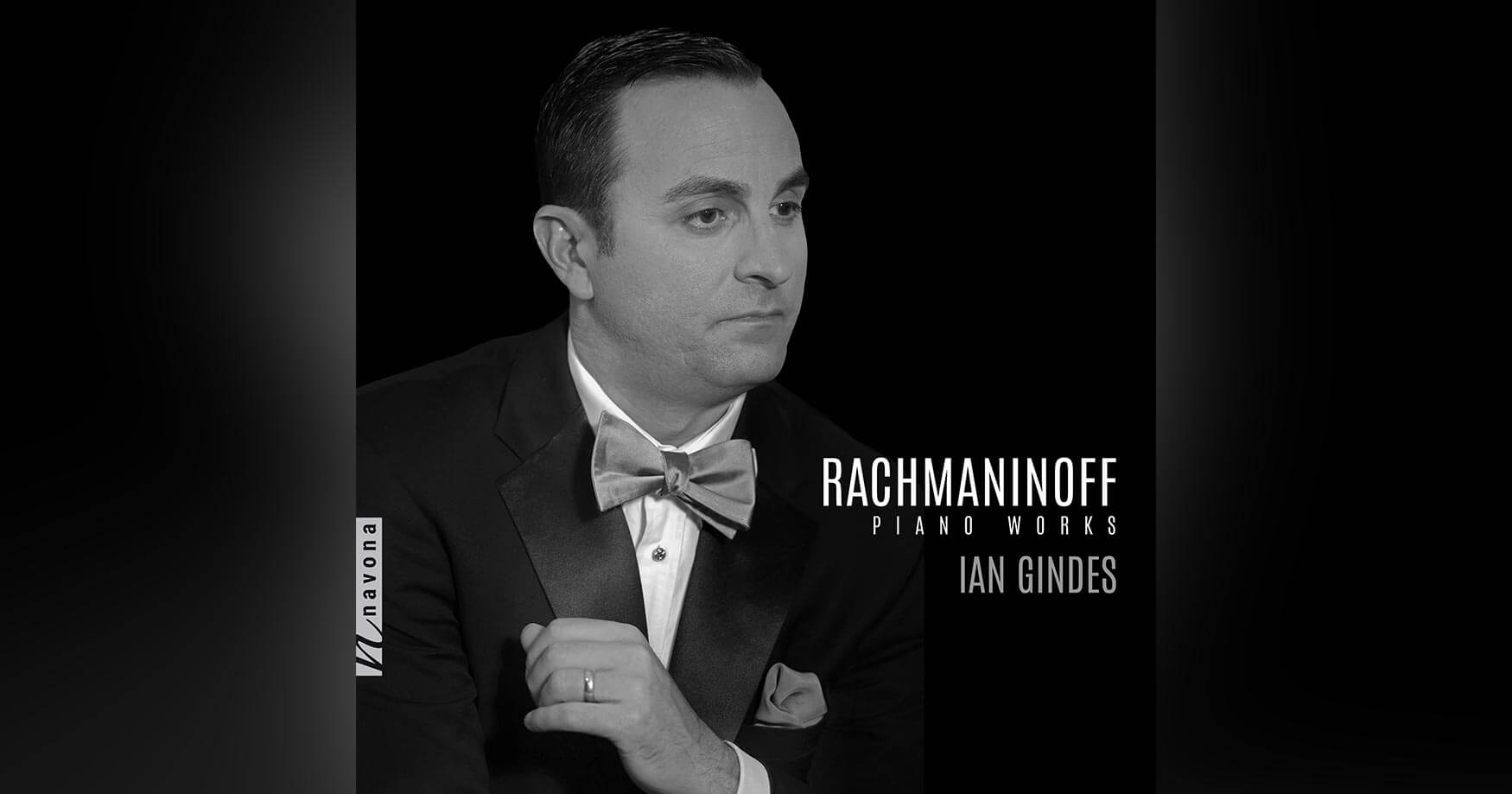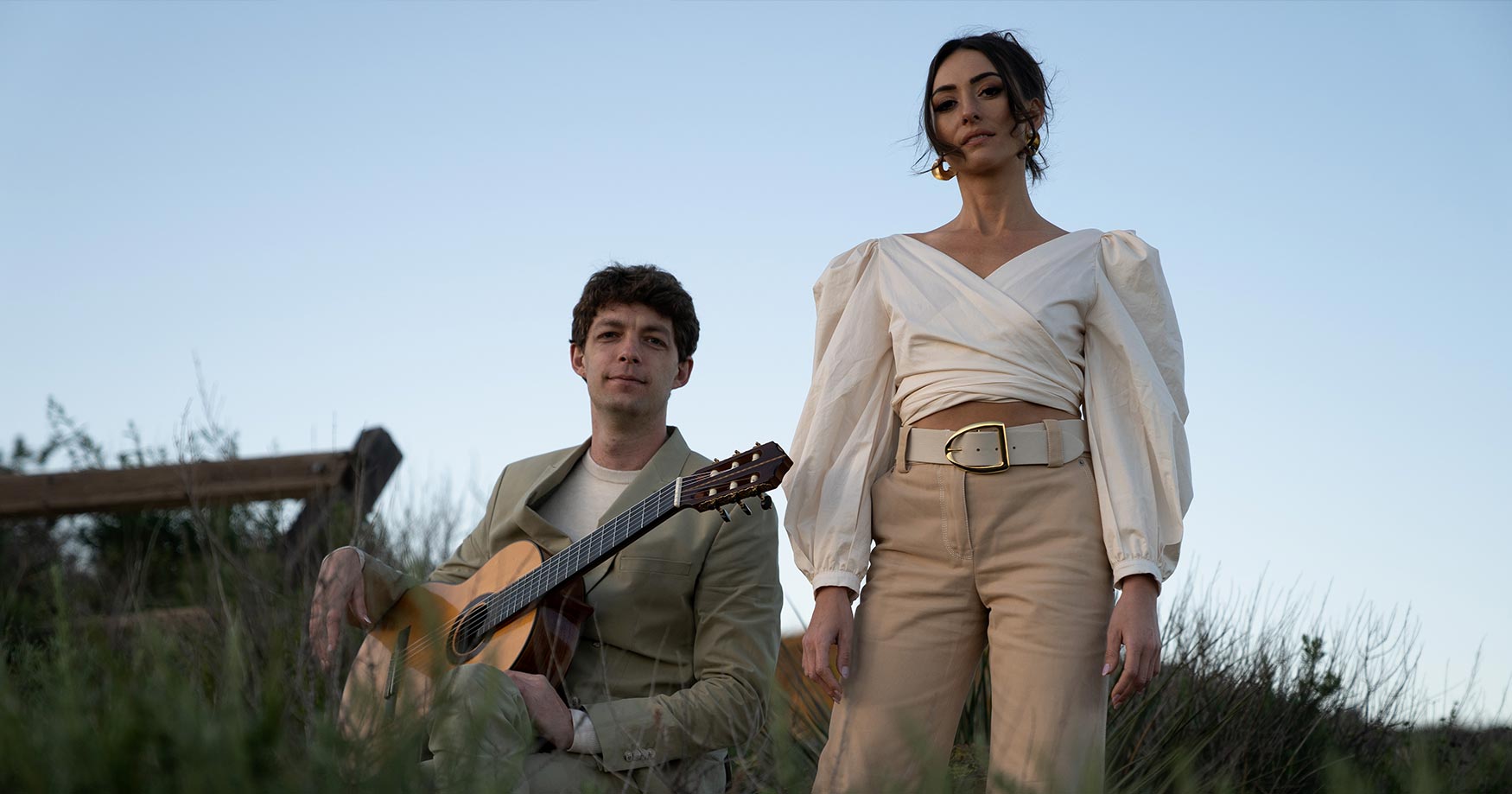CHAMBER WORKS OF ÉRIC TANGUY from Navona Records and composer Eric Tanguy delivers three world premiere recordings and a curated selection of the composer’s chamber pieces that demonstrates his illustrative style of punctuated modality. Brought to life by talented artists Ambroise Aubrun (violin), Cécilia Tsan (cello), Steven Vanhauwaert (piano), Martin Chalifour (violin), and Elissa Johnston (soprano), these seven pieces reflect many years of past collaboration amongst the performers resulting in a connection that is translated through thoughtful yet intense musical stylings.
Today, Cécilia is our featured artist in “The Inside Story,” a blog series exploring the inner workings and personalities of our composers and performers. Read on to learn about her days of growing up alongside Yo-Yo Ma, and the admiration she has for jazz musicians…
Who was your first favorite artist(s) growing up?
My parents were young musicians and part of the small “diaspora” of Chinese immigrant artists in Paris in the 1950s. At that time, Chinese artists were not numerous in France and it was a small world. Among their close friends were Yo-Yo Ma’s parents. So basically, Yo-Yo is my oldest friend.
My Dad died in tragic circumstances right after my birth. I began playing the piano (like my sister). Then I asked to play the violin (like my parents). I did play both for a short time. Then after hearing Yo-Yo play the cello and being so moved, I begged my Mom to get me a cello. A priest, who was helping my family survive the tragedy of my father’s death, was generous enough to buy my first cello. And Yo-Yo’s Dad introduced us to his first cello teacher who then became mine, too. We would sometimes, after a nice homemade Chinese meal, listen to Yo-Yo play and every single time we were moved to tears. So much sensitivity and musicality at such a young age was really breathtaking. And you already could perceive the incredible artistry and humanity of this extraordinary friend. To this day, he is a great friend and a constant inspiration.
When did you realize that you wanted to be an artist?
As soon as I started playing the cello, I knew I would play it all my life but, initially, when I was in high school, and naturally a bit lazy, I did not want to become a professional. I then had an amazing philosophy teacher that senior year (6 hours per week) and she made me love philosophy. Actually, after finishing high school, I decided that my two majors would be philosophy and Chinese which I did enjoy a lot. But then, one of the greatest French cellists asked me to attend his international master-classes in Siena, Italy. When you are 17 and discover the beauty of Tuscany and attend cello classes in a 15th century palazzo, you are overwhelmed with beauty. I heard fabulous musicians from all around the world in concerts and classes. I felt the extraordinary emotions shared while making music TOGETHER. I ate gastronomic food in humble “trattorie” but overall, one of the greatest cello masters of all time took me under his wings and decided that he would prepare me to enter the iconic Conservatoire de Paris. The following year it did happen and the rest is history.
If you could instantly have expertise performing one instrument, what instrument would that be?
I would have loved to play the piano besides the cello (not instead of). I love and envy the endless and magnificent piano repertoire. (Oh, Schubert, Mozart or Brahms piano pieces make me melt.) I wish that the cello were also a polyphonic instrument. It’s rare that we play an entire piece with several voices. Maybe, one day, if I have more time, I will try to relearn how to play the piano; I so miss the harmony option that we do not have on the cello. Playing a series of chords and accompanying yourself is possible with a piano but so much more difficult on the cello.
Besides the polyphonic aspect of the piano, I wish I could play jazz on a piano. After hearing so many great jazz concerts in Los Angeles, some performed by “la crème de la crème,” I hope that in my next life, I will ALSO play jazz. The liberty and creativity of improvisation is fascinating to someone who only plays music already written. I sure envy the joyous freedom and exhilaration created by the fabulous jazz musicians I heard in Los Angeles.
If you could make a living at any job in the world, what would that job be?
I have no other answer than replying that I would like to be a cellist. I would not trade what I do for anything in the world. I cannot even call that a job. It is a passion of every minute and I cannot envision myself doing anything else with so much joy and enthusiasm. That love for music has been growing since the very beginning. Besides, since no one is perfect and there is endless room for improvement, it’s a constant goal to get better at what I do and to learn new pieces. One cannot be bored in doing so!
The other immense exhilaration that you get from being a musician is the magical interaction with an audience, whether it is in front of 2500 people or just for one person. I have seen tears running on faces in a gigantic theater when people were so moved by the music, but I also felt extreme emotions when playing for some people about to leave this world. There is nothing comparable to the communion induced by the power of music. I feel really blessed to share it: my mission is definitely to make this world less harsh through music.
If you could spend creative time anywhere in the world, where would it be and why?
When one pronounces the word “creative time” it indeed almost implies that it’s possible “anywhere in the world.” Just recently, I went to Berkeley CA, and followed someone’s recommendation to go to “Musical Offerings.” What an amazing discovery! This is a charming coffee-shop/restaurant, which also sells used books and recordings (LPs and CDs). Every Sunday they have people playing chamber music live. What a fabulous concept! Nothing is flashy or stinks of “money maker.” There is also modern art (some of it for sale) on the walls and the atmosphere is just delightful.
After spending a fabulous time there, listening to an excellent quartet playing Haydn, I wondered where in the world there would be a similar venue. No answer came to mind and all of a sudden, I caught myself thinking: “What about creating such a place in Los Angeles or Paris or…Italy?” Yes, dreaming. But I do believe that the world needs more places like that to be in direct contact with beauty and spirituality and to share it: an extraordinary vehicle to communicate with other humans, even without words. Truly moving. I have not renounced to create such a place one day…. And one could add poetry reading with improvised music or dance…To be continued.
What does this album mean to you personally?
I would quote Eric Tanguy’s words about the genesis of the album:
“My first encounter with Cécilia Tsan goes back to last century. We happily reconnected at the end of the 2000s. Cécilia had transposed her existence to California while remaining closely linked to French and European musical life. As far as I was concerned, I had developed an intense activity as a composer throughout the world. We saw each other again in Paris and Cécilia was eager to ask me to write a trio for violin, cello, and piano. After much hesitation — because I said to myself that, after Schubert, Brahms, Ravel, Shostakovich, Takemitsu and a few others, the task would be particularly arduous — I accepted her offer.”
The Trio was definitely written after Eric heard about my family story over several months. It evokes the tragedy of my Dad’s tragic death and all the family survival struggles with music eternally present.
In this album there are three recording world premieres: the Trio, the Nouvelle Étude (for Piano solo), Le Lys et La Lyre that I also commissioned: a piece for Soprano and Cello, on a poem by François Cheng, a friend of my parents and the only Asian member of the iconic Académie Française. I could not be happier that it was all played with my wonderful musicians and friends Steven Vanhauwaert, Ambroise Aubrun, Elissa Johnston, and Martin Chalifour. Merci to each of them.
Explore Cécilia Tsan’s Latest Release
CHAMBER WORKS OF ÉRIC TANGUY
CHAMBER WORKS OF ÉRIC TANGUY is available now from Navona Records. Click here to visit the catalog page and explore this album.
The views and opinions expressed in this post are those of the artist and do not necessarily represent or reflect the views and opinions held by PARMA Recordings LLC and its label imprints, subsidiaries, and affiliates.




